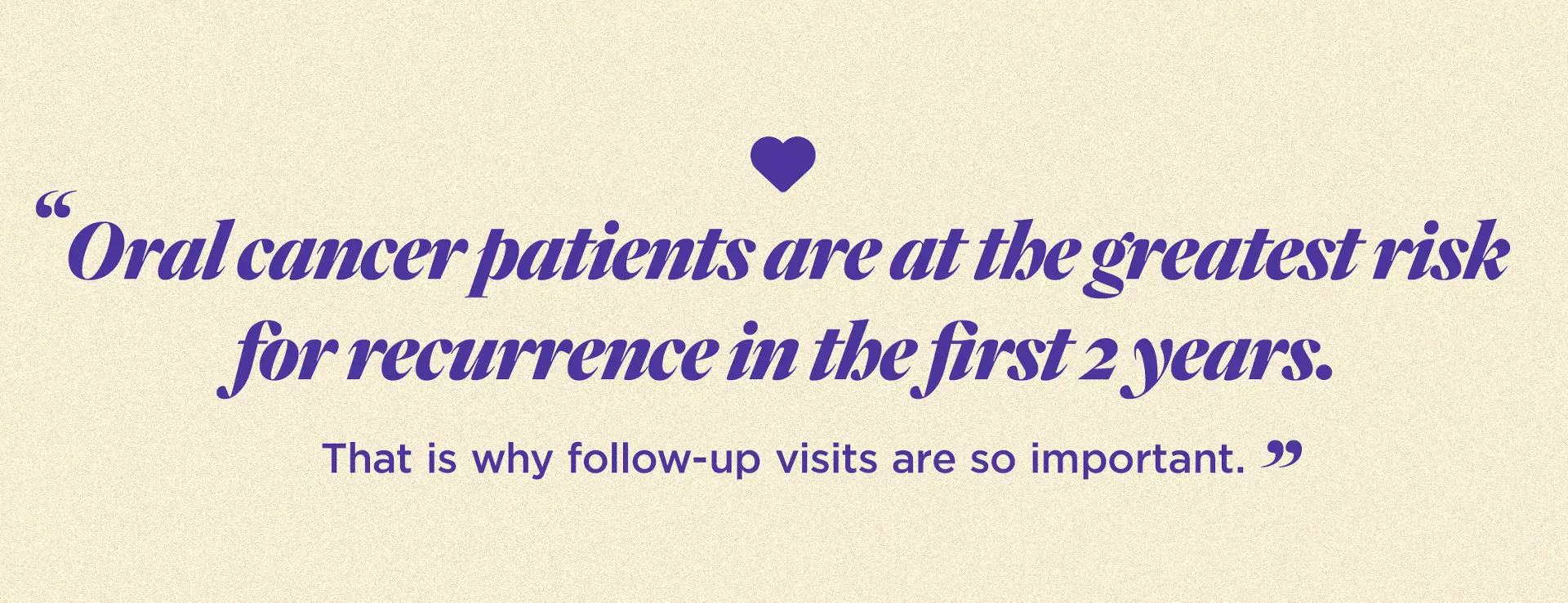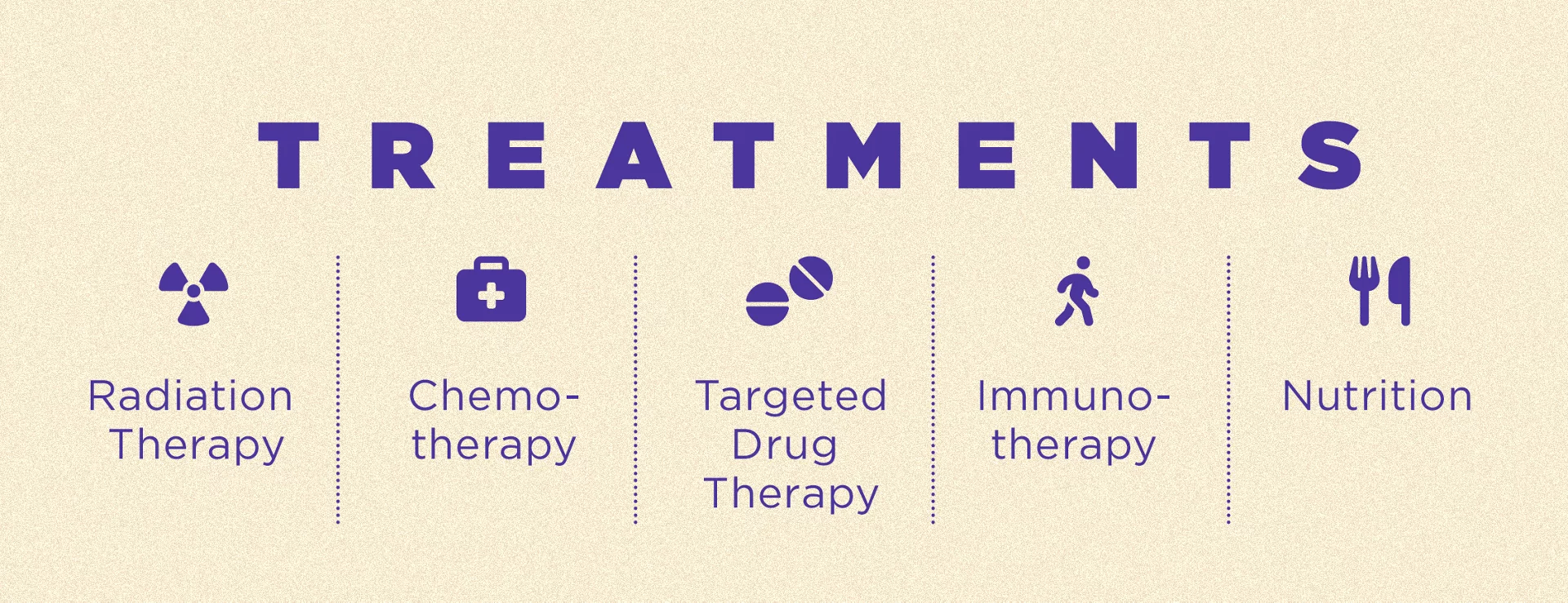Cancer affects all aspects of the body, including organs, bones, blood, and the brain. It can also affect the mouth. Mouth cancer is often referred to as oral cancer or oral cavity cancer. Oral cancer is grouped in the head and neck cancers category. Treatment options for these cancer types tend to be the same.
Like with many other illnesses, oral cancer will present specific symptoms. Some signs and symptoms of oral cancer include the following:
- A sore on the mouth or lip that doesn’t heal
- A white or reddish blotch inside the mouth
- A lump or growth inside the mouth
- Mouth and/or ear pain
- Pain when swallowing
- Loose teeth
Note when these symptoms develop. Consult your dentist or doctor if the symptoms persist beyond two weeks. Common illnesses, such as infections or other oral conditions, need to be ruled out prior to diagnosing mouth cancer. Does oral cancer spread quickly? It certainly can. Early detection is the key to preventing the cancer from spreading quickly.
If your dentist or doctor suspects you have oral cancer, there are a few steps needed to make a proper diagnosis.
Your mouth and lips will be physically examined to check for any type of abnormality. This includes sores and white patches – known as leukoplakias.
A biopsy needs to be performed if any abnormalities are discovered during the exam. A small portion of the abnormality is removed from the suspected area. The sample is then sent to a laboratory to be analyzed for precancerous or cancerous cells.
Your doctor or dentist will have to determine the extent of the cancer should the biopsy come back positive. This can be accomplished through an endoscopy. That’s when a small camera with a light attachment is passed down the throat to check for signs that the cancer has spread beyond the mouth.
Imaging tests are another method to check for signs that the cancer has spread. Imaging test options include X-rays, a CT scan, and MRI, or a positron emission tomography (PET) scan. A doctor determine which test is the correct one to perform.
The correct mouth cancer treatment option depends on the location and stage of the cancer. It also depends on a patient’s overall health and treatment preferences.
Surgery tends to be the most common treatment method. It can be used for early-stage cases, late-stage cases, and recurrent cases.
How do they remove oral cancer? There are several surgical types of treatment for oral cancer. The first involves surgically removing the tumor. A surgeon cuts out the tumor and a section of healthy tissue that surrounds it. This extra precaution intends to make sure all the cancer cells are removed.
Small tumors are a minor surgical procedure while larger tumors are more involved. A patient might lose some jawbone or a tongue portion in addition to the tumor if it is large enough.
A neck dissection is necessary if the oral cancer has spread to the neck. The lymph nodes and related tissue are removed during this procedure.
Mouth reconstruction surgery might be necessary in some cases after the tumor has been removed. Sections of your mouth might need to be reconstructed for you to talk and eat post cancer removal. This type of surgery can involve grafts of bone, muscle, and skin from other areas of the body. A patient could also need dental implants to replace lost teeth from the surgery.
Oral cancer surgery isn’t without risks. A patient can suffer from bleeding or develop an infection. Your appearance and ability to eat, drink, and swallow can also be affected.
This is the process of using beams of high energy, such as protons or x-rays to kill cancer cells. The radiation beams usually come from a machine outside of the body. Though, radioactive seeds and wires can be placed internally to deliver the radiation.
Radiation therapy often supplements cancer removal surgery. It can also be a stand-alone treatment for an early-stage cancer. Radiation can also work in conjunction with chemotherapy.
Radiation side effects can include dry mouth, jawbone damage, and tooth decay.
Chemotherapy incorporates chemicals to kill cancer cells. It is a multi-use treatment as it can be used alone, combined with other chemotherapy drugs, or used with different treatment methods.
Typical side effects include hair loss, nausea, and vomiting. Side effects vary depending on the chemotherapy drugs used in treatment.
This
therapy type tends to be effective in early-stage and late-stage cancers. The drugs bind with proteins found in cancer cells to inhibit their growth.
Using the body’s immune system to fight cancer is known as immunotherapy. Cancer cells produce proteins that blind immune system cells. Immunotherapy negates that process. It is usually used in patients whose mouth cancer has been resistant to typical cancer treatment methods.
Cancer treatment methods can make eating and swallowing painful and challenging. Many patients suffer from poor appetite and weight loss. Maintaining
proper nutrition is key as a patient navigates oral cancer treatment.
Discuss an eating plan with a nutritionist. You’ll need to consume foods that are gentle on your mouth and throat. Those foods will also need to provide your body with the necessary calories, minerals, and vitamins to heal and keep you healthy.
Also, quit tobacco and alcohol usage. Tobacco not only causes cancer, but it renders treatment less effective while making it harder for the body to heal post-treatment. The chance of developing a second cancer is decreased when you stop drinking alcohol.
Oral Cancer Treatment Cost
How much does it cost to treat oral cancer? The cost of treating oral cancer depends on numerous factors:
- Cancer treatment type
- Length of treatment
- Location of treatment
- Health insurance coverage
- Do you have supplemental insurance?
Costs consist of doctor appointments, cancer treatment methods, medications, and travel and transportation. Additional costs include living expenses, at-home care, long-term care, and legal and financial issues.
How Long Will Treatment Last?
Cancer treatment length depends on several factors, including the stage of the cancer and the treatment method. Surgery can remove the initial tumor. But if the cancer has already spread without showing symptoms, then the treatment will last longer overall once additional symptoms develop.
Side Effects of Oral Cancer Treatment?
Side effects are to be expected from oral cancer treatment. As mentioned, some result from surgical procedures to remove the cancer or reconstruct the mouth. Other side effects are typical with various types of cancer treatment methods. Those side effects include:
- Fatigue
- Nausea
- Weight loss
- Diarrhea
- Constipation
- Dry mouth
- Taste changes
Side effects last for varying times. They can go for a few weeks to a few months. Some can even last the rest of the patient’s life, such as speech difficulties. The type of side effects and the length of time they persist depends on the cancer type and the treatment method.
What to Expect After Treatment is Complete?
Your doctor will schedule follow-up appointments and tests with you. These are spaced further apart the longer a patient is post-treatment.
Patients might also undergo radiation or chemotherapy if the initial cancer treatment involves surgery. The goal of those post-treatment procedures is to kill any remaining cancer cells not removed during the surgery.
Some side effects might continue post-treatment too. Patients could need speech therapy or continue consultations with a nutritionist.
Recovering from Oral Cancer Treatment
A patient’s recovery depends on their treatment type.
Some patients have pain and swelling after surgery. They might also struggle to talk, chew, and swallow as they did prior to surgery.
Radiation treatment can leave patients suffering from tooth decay, bleeding gums, jaw stiffness and pain, fatigue, and thyroid changes, to name a few.
Others might require reconstructive surgery and rehabilitation if they have an advanced case of cancer.
Is There a Chance Oral Cancer Could Come Back?
Cancer can always return regardless of how long a patient is in remission. Can oral cancer be cured completely? It is difficult to say. Patients are at the greatest risk for recurrence in the first two years. That is why follow-up visits are so important. Your doctor needs to monitor you closely for signs that the cancer has returned.
Oral cancer patients are susceptible to developing a second cancer. This can happen during cancer treatment or post-treatment.
Consult your dentist to discuss your questions about oral cancer. Or, check out The Smile Generation to find a dentist near you for all your oral care needs, including discussing how to treat mouth cancer. You can read patient reviews, peruse staff bios, and schedule an appointment online with a click of your mouse.
Find your trusted, local dentist today!
“Mouth Cancer,” Mayo Clinic, Oct. 2020, https://www.mayoclinic.org/diseases-conditions/mouth-cancer/symptoms-causes/syc-20350997
“Mouth Cancer,” Mayo Clinic, Oct. 2020, https://www.mayoclinic.org/diseases-conditions/mouth-cancer/diagnosis-treatment/drc-20351002
“Top questions about oral cancer,” Cancer Treatment Centers of America, March 2022, https://www.cancercenter.com/cancer-types/oral-cancer/questions
The American Cancer Society medical and editorial content team, “Treatment Options for Oral Cavity Cancer by Stage,” Cancer.Org, Mar. 2021, https://www.cancer.org/cancer/oral-cavity-and-oropharyngeal-cancer/treating/by-stage.html
Johnson, Shannon, “Oral Cancers,” Healthline, Sep. 2020, https://www.healthline.com/health/oral-cancer
Cancer.Net Editorial Board, “Understanding the Costs Related to Cancer Care,” Cancer.Net, Mar. 2018, https://www.cancer.net/navigating-cancer-care/financial-considerations/understanding-costs-related-cancer-care
Smile Generation blog articles are reviewed by a licensed dental professional before publishing. However, we present this information for educational purposes only with the intent to promote readers’ understanding of oral health and oral healthcare treatment options and technology. We do not intend for our blog content to substitute for professional dental care and clinical advice, diagnosis, or treatment planning provided by a licensed dental professional. Smile Generation always recommends seeking the advice of a dentist, physician, or other licensed healthcare professional for a dental or medical condition or treatment.










